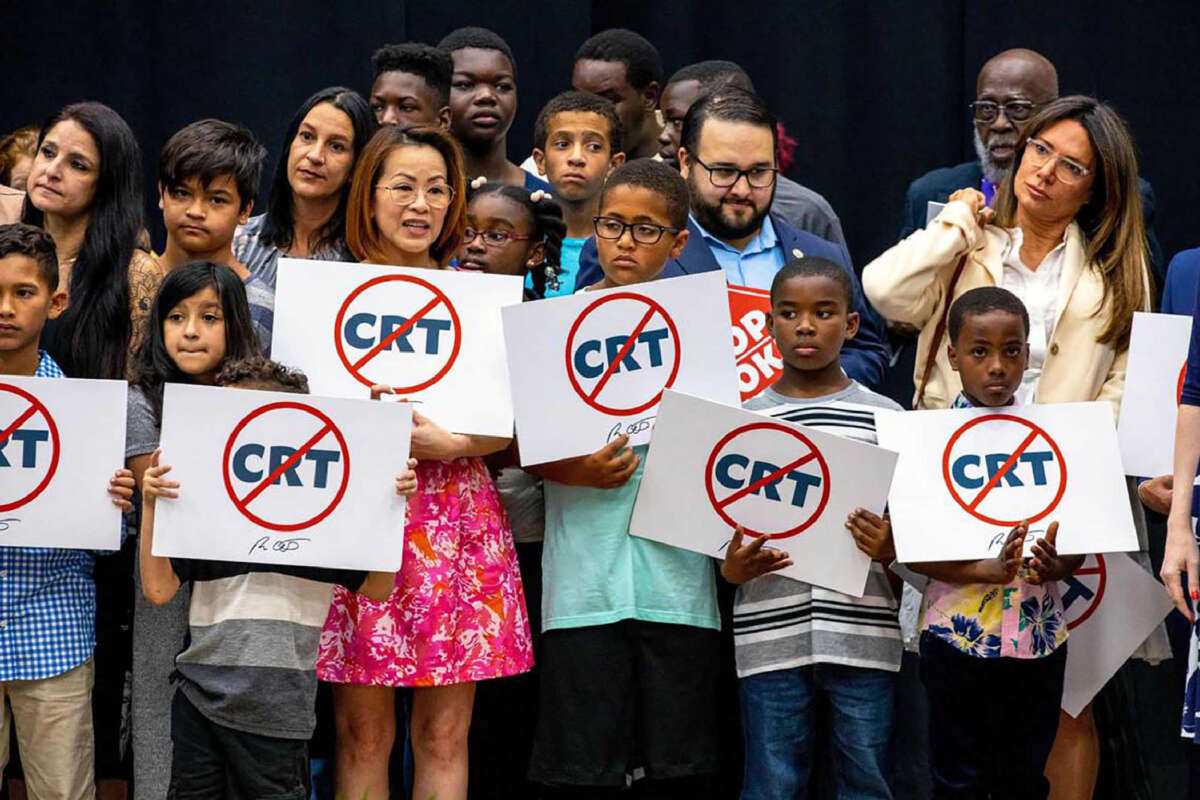Truthout is an indispensable resource for activists, movement leaders and workers everywhere. Please make this work possible with a quick donation.
The Florida Board of Education has approved new curriculum standards for lessons on Black history that racial justice advocates and educators say will whitewash the brutality of white supremacy and slavery in the U.S.
The board will now require teachers to tell middle school students that enslaved people gained a “personal benefit” from the skills they learned under slavery before the Civil War.
When high schoolers learn about events like the 1920 Ocoee Massacre, the new rules dictate that educators must include “acts of violence perpetrated against and by African Americans.” The Ocoee Massacre — in which a white mob destroyed a Black town in Florida and murdered as many as 60 people after a Black man attempted to vote — is the deadliest incident of Election Day violence in U.S. history.
Florida Department of Education board member MaryLynn Magar, who was appointed by Gov. Ron DeSantis (R) this past spring, defended the changes by claiming “the darkest parts of our history are addressed,” adding that she and other board members were “proud” of the changes they made.
Educators and racial justice advocates have condemned the changes. In a letter to the board, 11 organizations, including the NAACP and the Florida Education Association, the state’s largest union of educators, denounced members for failing to adequately depict “key historical facts about the Black experience.”
“We owe the next generation of scholars the opportunity to know the full unvarnished history of this state and country and all who contributed to it — good and bad,” the letter stated.
Other critics of the new standards noted that the Florida Board of Education’s move is part of a wider campaign against public education and the teaching of Black history under DeSantis.
“When you couple these standards, with the environment, the hostility towards daring to talk about certain subjects, it creates an environment where there’s going to be a complete removal of these conversations and of these lessons in the classroom because nobody wants to run afoul of all of the laws or policies that have been put in place,” said Genesis Robinson, political director for advocacy group Equal Ground.
“Slavery was not beneficial to enslaved people. Ever. The fact that a fellow history teacher in Florida is now expected to teach that is asking that teacher to commit educational malpractice,” Sari Beth Rosenberg, educator and host of PBS NewsHour Classroom, said in a tweet responding to the changes. “It is forcing teachers to teach lies to their students.”
“I will not teach history under the condition that I lie about it,” educator Paula Essi said.
The board’s decision to change curriculum standards is the latest in a string of DeSantis-backed attacks on the teaching of Black history in Florida. Earlier this year, for instance, state officials rejected an Advanced Placement (AP) course on Black history, claiming that its content lacked “educational value.” The state Department of Education also rejected 35 percent of social studies textbooks submitted for consideration, including books referencing the police murder of George Floyd and the Movement for Black Lives. DeSantis also recently signed bills into law banning diversity programs at colleges and universities in the state.
Most notoriously, DeSantis signed into law last year the so-called “Stop WOKE” Act, which limits how teachers can discuss issues relating to race and gender with their students. The law has been panned by educators and racial justice advocates for being a means to erase Black history.
The laws imposed by DeSantis and his allies in the state legislature are proto-fascist, historian Barbara Ransby wrote in an op-ed for Truthout in January.
“In attacking African American studies, DeSantis has taken one more step toward not only a full-on embrace of white nationalism and authoritarianism, but also toward situating himself in a truly ‘alternative reality,’ where facts don’t matter, research is irrelevant, expertise is sidelined, and young people are scurrilously miseducated,” Ransby warned.
A terrifying moment. We appeal for your support.
In the last weeks, we have witnessed an authoritarian assault on communities in Minnesota and across the nation.
The need for truthful, grassroots reporting is urgent at this cataclysmic historical moment. Yet, Trump-aligned billionaires and other allies have taken over many legacy media outlets — the culmination of a decades-long campaign to place control of the narrative into the hands of the political right.
We refuse to let Trump’s blatant propaganda machine go unchecked. Untethered to corporate ownership or advertisers, Truthout remains fearless in our reporting and our determination to use journalism as a tool for justice.
But we need your help just to fund our basic expenses. Over 80 percent of Truthout’s funding comes from small individual donations from our community of readers, and over a third of our total budget is supported by recurring monthly donors.
Truthout’s fundraiser ended last night, and we fell just short of our goal. But your support still matters immensely. Whether you can make a small monthly donation or a larger one-time gift, Truthout only works with your help.
